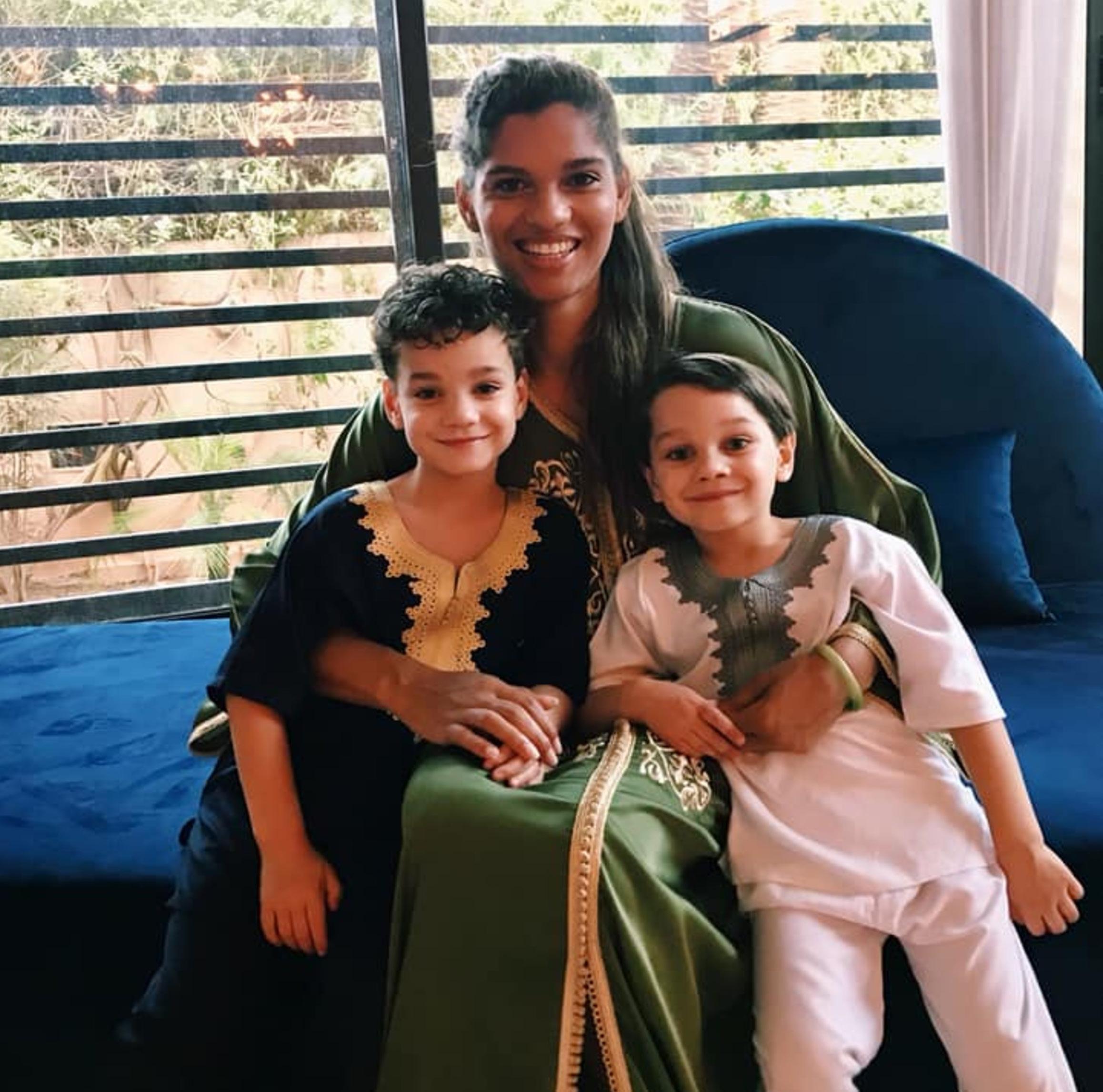
3 minute read
HOW DO YOU NAVIGATE LIFE- What Blackness Looks Like Series.
by Paloma Thompson
A BIRACIAL EXPAT SINGLE MUM IN MOROCCO DISCUSSES BELONGING.
It’s the 1960s in London, and a 5-year-old black boy blissfully eats Cadbury’s Dairy Milk chocolate fingers. The other, white British, children in his class point and laugh, “look, he’s eating his fingers!”
Thirty years later, a 5-year-old dual heritage girl is standing in the school playground while the other children tell her “you can’t play with us, you’re the colour of poo!”
Twenty years hence, a 5-yearold white-passing boy is told that he is a bad person because his mother is brown, and everybody knows that brown and black people are bad.
Over the span of 50 years, nothing has changed. Britain’s racism hasn’t disappeared, it’s just gone underground. When white is the status quo and anything ‘other’ is exactly that, where do you go? For me, it’s Morocco.
I am not a black man, but my father is a black man. My brother is a black man, my uncles and cousins are black men. As a dual-heritage woman I am afforded some privileges that aren’t extended to my black male family members. However, that doesn’t mean I’m immune, there is a stark difference between life in my hometown, London, and my life in Marrakech.
In London, some people would identify me as black to justify or determine their treatment of me.
On rare occasions where I was perceived as ethnically ambiguous, they felt it was open season to express their true racist views against people of African descent.
From being followed around stores, to being called racial slurs and spat at on the street, I have never been more acutely aware of the colour of my skin than in the multicultural global hub that is London. Although racism wasn’t the motivating factor for me to move to Marrakech, it is one of the reasons I have no immediate plans to leave.
In a country where everybody else looks like me, I am not followed around stores or treated with suspicion. I am not called racial slurs, nor am I spat at. My relationship with my children isn’t questioned. The Moroccan people laugh in delight to discover that while I am brown, I am in fact not Moroccan nor do I speak Arabic and offer a few useful phrases with a smile.
Contrast this to a stranger on a train in London exclaiming that my English was very good and my quipping back that “I should hope so.” In the city of my birth, I was made to feel like an unwelcome alien. In my adopted city, I am welcomed like a longlost sister.
Unfortunately, changing your environment isn’t a possibility for everybody and so, I am left wondering how we can protect our black men when, despite our campaigns and protests, our speeches and rants, our marches and vigils, all we can say is “nothing’s changed?” We need allies, we need action — and we need it now.
I’m starting with my children who have the privilege of appearing white. I talk to them every day about race and discrimination, that people will turn their backs on them once they find out they are of African descent, that our ancestors were enslaved. I tell them that the black men in our family who they love and admire could be hurt for the colour of their skin. I tell them these things with the hope that one day they can say “something has changed.”
Paloma Thompson is a Marrakech, Morocco-based dual heritage, single parent of neurodiverse children from London, U.K. Her father is a British-born black man of Jamaican parents and her late mother was a British-born woman of Scottish and German heritage. Thompson has a science background with an undergraduate degree in Biochemistry and Biology, and has previously worked in science education but now home-educating her children. She feels strongly about raising raceconscious, feminist children who are aware of world history and open to other cultures and languages through a combination of gentle and autonomous supportive parenting by world schooling. She has taken part in the MixedRacedFaces project, as well as written for The Motherload and gal-dem online magazines as well as her personal blog, Little Londoners.










